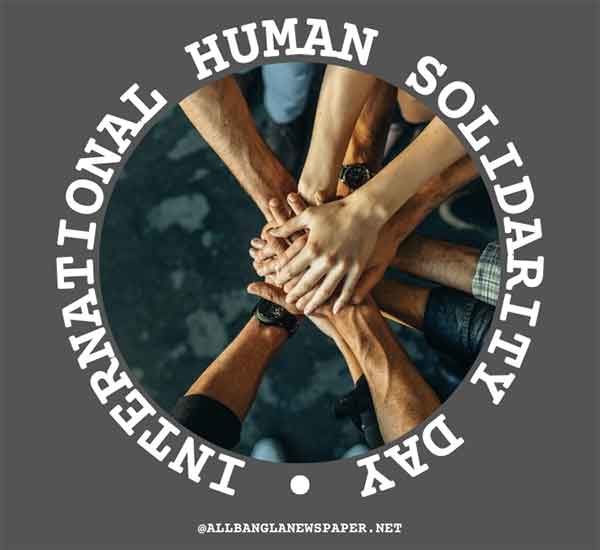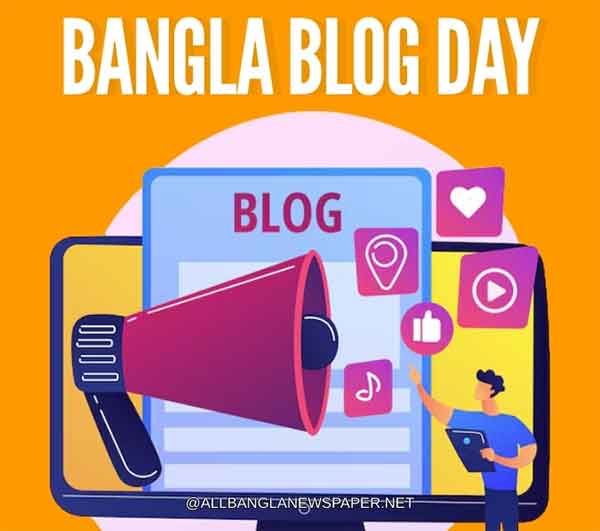
International Human Solidarity Day is an important observance highlighting the necessity of solidarity among people and nations to foster peace, understanding, and cooperation in an increasingly interconnected world. It is a day dedicated to promoting a sense of community and support across national, cultural, and social boundaries, highlighting the power of collective action in overcoming global challenges such as poverty, inequality, and social injustice. Established by the United Nations in 2005, this day serves as a reminder of the fundamental human values that unite us and calls for collective efforts in building a fairer and more inclusive world.
The significance of International Human Solidarity Day lies in its call to action—encouraging individuals, governments, civil society organizations, and communities to come together and work toward solutions that uplift all members of society, regardless of their background or circumstances.
Understanding the Essence of International Human Solidarity Day
International Human Solidarity Day was first proclaimed by the United Nations General Assembly to promote and celebrate the unity of people worldwide. The day, observed annually on December 20th, encourages individuals and organizations to reflect on the importance of solidarity in addressing global challenges and advancing the principles of equality and human dignity.
The concept of solidarity refers to our shared responsibility for one another as human beings, regardless of nationality, ethnicity, or social status. It highlights the idea that the well-being of individuals is inherently connected to the well-being of communities and societies. In a world where conflicts, natural disasters, economic disparities, and other challenges often divide us, solidarity becomes a powerful tool for bridging these gaps and fostering a sense of mutual responsibility.
International Human Solidarity Day reminds us that no one should be left behind. It calls for collaborative efforts to address pressing global issues such as poverty, inequality, human rights, and environmental sustainability. Through collective action, solutions can be created that benefit all people, particularly those who are marginalized or disadvantaged. This observance serves as both a reflection on the progress made in the fight for equality and justice and a call to redouble efforts toward achieving these goals.
The Global Impact of Solidarity and Collective Action
Solidarity is not just a moral ideal but a practical force for positive change. Historically, global movements rooted in solidarity have played pivotal roles in addressing various forms of injustice and inequality. For instance, solidarity was a key factor in the anti-apartheid movement in South Africa, the civil rights movement in the United States, and the fight for gender equality worldwide. In each case, people came together across cultural, political, and geographical boundaries to support one another in pursuing justice.
Today, solidarity continues to be crucial in tackling modern challenges, such as climate change, global health crises, and economic inequality. The COVID-19 pandemic, for example, underscored the importance of solidarity in times of crisis, as countries, organizations, and individuals worked together to ensure access to vaccines, medical supplies, and financial support for those in need. Solidarity, therefore, ensures that no one is left behind, especially when facing global issues that affect us all.
International Human Solidarity Day reminds us to continue this work. It encourages us to reflect on how our actions—whether as individuals, organizations, or nations—can contribute to a more just and equal world. Whether through charitable initiatives, advocacy for human rights, or support for global development programs, every act of solidarity builds a better future.
Bangla Blog Day and Its Significance in Promoting Bangla Content and Culture
Similarly, events like Bangla Blog Day and Its Significance in Promoting Bangla Content and Culture also play an essential role in promoting unity and solidarity, albeit on a more localized level. As we become more interconnected globally, preserving and celebrating regional cultures and languages is crucial, ensuring that they thrive in the digital age. Bangla Blog Day serves as a reminder of the power of digital media in sharing and preserving the cultural heritage of Bengali-speaking communities.
Through blogs, social media platforms, and online publications, individuals and content creators from Bangladesh and other Bengali-speaking regions can express their views, share stories, and engage with a global audience in their native language. By doing so, they not only promote the richness of Bengali culture but also help foster a sense of unity among people who speak the same language, regardless of their geographical location.
Today, Bangla bloggers are encouraged to share their insights on various topics, from politics and society to art and literature. Their contributions to the online space play a vital role in building bridges between communities and ensuring that the Bengali language and culture continue evolving and thriving in the digital era. In this way, Bangla Blog Day contributes to the broader goal of solidarity by fostering cultural exchange and understanding.
The Role of Digital Media in Promoting Human Solidarity
In today's world, digital media plays an essential role in promoting solidarity across national and cultural boundaries. Platforms such as blogs, social media, and news websites have made it easier than ever for people to connect with others around the world, share experiences, and collaborate on global issues. The digital realm has become a place where individuals can work together to address global challenges, whether through raising awareness, organizing movements, or providing support to those in need.
For instance, digital platforms are often used during crises to mobilize humanitarian aid, raise funds for disaster relief, and provide critical information to those affected. Social media has also proven to be a powerful tool for advocacy, allowing individuals and organizations to amplify their voices and demand action on issues such as climate change, human rights, and social justice.
In Bangladesh, Bangla News outlets and blogs have played a significant role in highlighting important social and political issues. These platforms give voice to individuals who may not otherwise have the opportunity to participate in public discourse. By covering local issues and global topics that affect Bangladesh, Bangla news outlets help create a more informed and engaged citizenry, contributing to solidarity within the Bengali-speaking community and beyond.
In addition to news, Bangla bloggers and digital content creators often highlight stories of human resilience and solidarity. Whether sharing personal accounts of overcoming adversity or highlighting community efforts to address social issues, these digital storytellers help inspire others to take collective action for the common good.
The Importance of Promoting Solidarity Through Education and Advocacy
One of the most effective ways to promote solidarity is through education. By teaching individuals, especially young people, about the value of cooperation, empathy, and shared responsibility, we can create a generation committed to working together to solve global problems. Educational initiatives focused on global citizenship, human rights, and environmental sustainability can foster a sense of solidarity that transcends borders and empowers people to act in their communities.
Advocacy also plays a crucial role in promoting solidarity. By raising awareness about issues such as poverty, inequality, and discrimination, advocates help to build public support for policies and initiatives that promote fairness and equality. Whether through grassroots movements or international campaigns, advocacy helps to bring attention to the causes that matter most and mobilize people to take action.
International Human Solidarity Day is an important reminder of the role of education and advocacy in building a more compassionate world. It calls on individuals and organizations to engage in efforts that promote solidarity and work toward a more inclusive global community.
Conclusion
International Human Solidarity Day is a powerful reminder of the importance of unity in the face of global challenges. It encourages people worldwide to work together to address poverty, inequality, and human rights violations. Solidarity is not just a moral ideal but a practical tool for creating positive change, and this day underscores the need for collective action to build a fairer, more just world.
At the same time, events like Bangla Blog Day and the growing influence of Bangla News outlets contribute to promoting solidarity at a cultural level. They offer a platform for people to engage with their shared language and heritage, strengthening community bonds and fostering cultural understanding. By embracing the power of digital media and cultural exchange, we can continue building a world in which solidarity is a value and a lived reality.
Ultimately, the message of International Human Solidarity Day is clear: we are all connected, and through cooperation, empathy, and collective action, we can build a better world for everyone.
#InternationalHumanSolidarityDay #Solidarity #GlobalSolidarity





